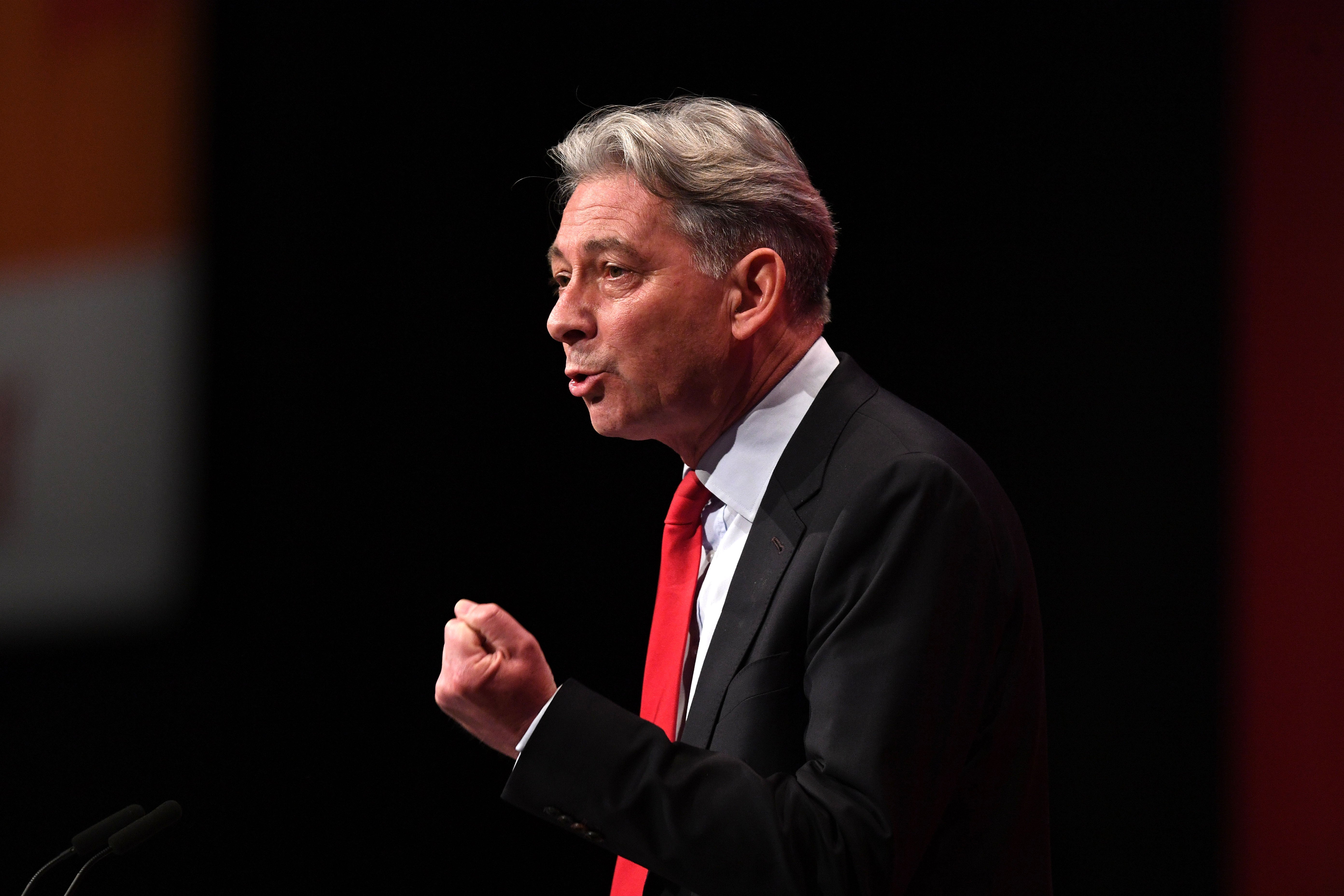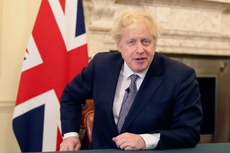Scottish Labour leader calls for further devolution and UK-wide council of ministers post-Brexit
Exclusive: Leonard says there is ‘opportunity to decentralise and recast the balance of power in the UK’

The balance of power in Britain should be “recast” after Brexit with greater devolution and a council of ministers representing the four nations of the UK, the Scottish Labour leader has said.
Speaking to The Independent, Richard Leonard said he was feeding in his views to Sir Keir Starmer, who is expected to outline the party’s vision for the “future modernisation” of the constitution in the coming weeks.
During the contest to succeed Jeremy Corbyn, the Labour leader pledged to maintain the 2019 manifesto commitment to hold a “constitutional convention” and look at decentralising decision-making on the principles of federalism.
Mr Leonard said the party should not “wait around” until it returns to government and begin work immediately, adding that 21 years on from devolution “we still live in a very centralised state, especially compared to other parts of western Europe”.
Ahead of next year’s Holyrood elections, he also said Boris Johnson’s recently reported comments – suggesting devolution had been a “disaster” north of the border – made Scottish Labour’s job of being “unashamedly pro-devolution” more straightforward.
Setting out his priorities for a constitutional convention, he said: “I would like to see reform of the House of Lords – its abolition and replacement with a Senate of the nations and regions. I would like to see greater decentralisation of power across the UK, ideally I would like us to move towards a more federal state.
“But that’s not something for me to dictate from Scotland and I think that’s something that needs to be accepted and supported by people in other parts of the UK. With the exiting from the European Union it creates an historic opportunity to reevaluate where the balance of power lies inside the UK.”
The coronavirus pandemic, he added, has created “some semblance of joint working”, as the devolved administrations alongside the Cabinet Office thrashed out a UK-wide approach to Christmas so that restrictions could be relaxed in tandem so people can see their loved ones.
“It seems to me there is a role for a council of ministers of the UK that brings together devolved administration ministers with UK government ministers to try to get common approaches to issues where that is possible to do so,” he added.
“With Brexit it gets a whole new historic momentum behind it: we can either view the repatriation of powers to centralise or we can view it as an opportunity to decentralise and recast the balance of power in the UK.”
One of the biggest constitutional issues Mr Leonard will inevitably face in the coming months is the contentious question of Scottish independence. A recent poll showed record support for independence, and also found two-thirds of Scots believe the UK government should allow a second vote to be held in the next five years if Nicola Sturgeon’s SNP win a majority of seats at the 2021 Holyrood elections.
But Mr Leonard claimed the issue is declining in terms of what they view as priorities for the next Scottish government, adding: “Which is why we said that going into the elections next year we will not be backing a second independence referendum because we think the priority is going to be tackling the public health impact, both physical and mental of the pandemic.”
He refused to be drawn on Labour’s stance on Scottish independence ahead of the next general election in 2024. “The way in which that would even be a consideration would be if I was to sit here six months before the [Holyrood] election and concede that the SNP is going to get a majority,” he said. “I’m not going to do that.”
Mr Leonard, who faced a potential vote of no confidence in the summer months, is likely to once again face questions over his leadership if Scottish Labour comes third in the Holyrood elections. A recent poll showed the SNP enjoying 47 per cent support, with the Conservatives led by Douglas Ross on 20 per cent and Labour behind with 17 per cent.
“Im not contemplating losing,” he insisted. “I will obviously take account of the result when we get the result and make any decision about my future leadership of the party in light of that, but I’m clear that we’ve now got a united party which is working together to try and hold the Scottish government to account over its handling of the pandemic.”
He added that his priority was to reverse the trend of the party’s decline in Scotland, highlighting that in every election since 1999 there has been a decline in the number of Labour MSPs sitting in the Scottish Parliament.
“My second job is to take on the Tories and come from third place into second place and then after that it is about challenging the SNP – that’s what in my sights at the moment.”
Mr Leonard also believes there will be a “day of reckoning for the SNP’s handling of the pandemic” in Scotland, adding that there was “widespread concern” about the treatment of those in residential care during the pandemic.
“They were sent from hospital to care homes… they were sent there many of them, thousands of them, untested for Covid-19. It then turns out some of them were tested, tested positive and were still discharged into residential care homes. This was all under the watch, the guidance and directive of the Scottish government. So I think there will be a reckoning on that.”
On the prime minister’s reported comments that Tony Blair’s “biggest mistake” and had been a “disaster north of the border”, the Scottish Labour leader said: “There has been at times an unveiling of an almost English nationalism about Boris Johnson and I think this is just the latest manifestation of it.”
Mr Johnson later rowed back on the comments after they provoked intense criticism across the political divide and undermined the strategy of the Scottish Conservatives, and he insisted over the weekend he was a supporter of devolution. Offering his “unvarnished view”, the prime minister went on: “The way the SNP have handled devolution in Scotland has been a disaster. It’s an abysmal record.”
But Mr Leonard added: “It creates an interesting polarisation of opinion. It certainly makes our job more straightforward in that we are the party of devolution… We are unashamedly pro-devolution.
“If the Tories are going to paint themselves as anti-devolution and the nationalists in their own way are anti-devolution because they want to dispense with devolution inside the UK and set up a separate Scottish state then they are quite distinctive choices that which people will have in the polling booth next spring.”
Join our commenting forum
Join thought-provoking conversations, follow other Independent readers and see their replies
Comments




Bookmark popover
Removed from bookmarks